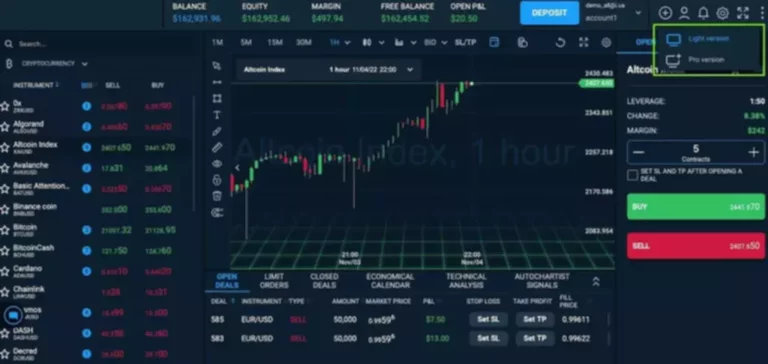Views expressed are as of the date indicated, based mostly on the data available at the moment, and will change primarily based on market or other situations. Unless otherwise noted, the opinions offered are those of the speaker or author and never necessarily those of Fidelity Investments or its affiliates. Fidelity does not assume any responsibility to update any of the information. Get our industry-leading funding evaluation, and put our analysis to work. Many or all the products featured listed under are from our companions who compensate us. This influences which merchandise we write about and where and how the product seems on a page.
Retail buyers who want to develop a passive revenue without devoting much time to the evaluation should make investments their cash. There are greater chances of rising your capital as an investor. A individual with correct information and a great sense of the market can attempt their luck in buying and selling. It is okay to do both because it is decided by an individual’s danger tolerance and endurance.Investing has low danger while trading would be thrilling however carries a high degree of danger.
What’s Trading?
At their most elementary level, trading and investing are identical. And every offers the possibility for you to pick a broad range of investment types that will assist you reach your private targets. Trading and investing might sound like interchangeable words for trying to develop your money within the inventory market. But they imply completely different things—and include their very own set of dangers and potential benefits. Knowing them can help you identify which one is finest in your money and total financial strategy. Various trading methods exist, including day buying and selling, swing trading, and algorithmic buying and selling which is done by trading apps available out there.
- It’s additionally important to do not overlook that you don’t should commit to only one or the opposite.
- Knowing them may help you identify which one is finest on your cash and total monetary technique.
- We’ll demystify each phrases and allow you to better perceive whether buying and selling vs. investing (or both) fits your style.
- The potential for loss is among the many key variations between the two.
They supply potential for long-term development but additionally include risks. Timing is the biggest distinction between investing and buying and selling. Stock buying and selling retains short-term income in mind, while investing typically refers to an extended time horizon — think months and years. Investing includes https://www.xcritical.in/ purchasing something with the hope it’s going to grow in worth over time. For example, traders put cash into a inventory to increase the value of their unique investment with any potential returns — taking on any threat of loss as well.
Faqs On Buying And Selling Vs Investing
NerdWallet, Inc. is an impartial publisher and comparability service, not an funding advisor. Its articles, interactive instruments and different content are offered to you at no cost, as self-help instruments and for informational purposes only. NerdWallet does not and cannot guarantee the accuracy or applicability of any information in regard to your particular person circumstances. Examples are hypothetical, and we encourage you to hunt customized advice from qualified professionals relating to specific funding issues. Our estimates are primarily based on previous market efficiency, and past performance just isn’t a assure of future performance.

Investing and buying and selling are two different methods of trying to revenue in the financial markets. Both traders and traders search profits by way of market participation. Investors typically search bigger returns over an prolonged interval through shopping for and holding. Traders, against this, take advantage of both rising and falling markets to enter and exit positions over a shorter time-frame, taking smaller, more frequent income. The potential for loss is among the key variations between the 2.
What’s The Distinction Between Commerce And Trading?
Remember, there’s no one-size-fits-all answer, and many people use a combination of both methods in their financial journey. Your alternative should align together with your monetary objectives, danger tolerance, and the time you’re willing to dedicate to managing your investments or trades. You’ll still wish to regulate your investment—at least periodically—to make certain the place stays in line with your aims and time horizons. If the corporate makes a change, say, to its product lineup, or its overall progress plan, you must take into consideration whether or not you wish to grasp onto it as an investment. If you got shares as a end result of the company pays a pleasant dividend, you might think about selling if the corporate encounters rough times and lowers the cost.
But, the risk of losses is undoubtedly decrease in the lengthy run. But that doesn’t mean buying and selling is investing and investing is trading. Trading is about figuring out short-term alternatives, whereas investing typically targets the long term. When you buy a stock—or any asset—make sure you realize what you’re trying to achieve, how a lot danger you’re willing to tolerate, and the way long you suppose it’s going to take. The info herein is basic and educational in nature and should not be thought-about legal or tax recommendation. Tax laws and rules are complex and subject to vary, which may materially influence investment results.

They suppose when it comes to years — not on a every day or minute-by-minute foundation like day merchants. Investing in the inventory market can be accomplished with low amounts of capital. With SIPs, newcomers can invest without worrying about value fluctuations.
Common funding automobiles embrace stocks, bonds, mutual funds, and real estate. Investors typically conduct thorough research on a company’s fundamentals, market tendencies, and financial indicators earlier than making a call. Diversification and a buy-and-hold mentality are key principles of profitable investing. Trading is mostly considered riskier than investing, because it entails more frequent buying and promoting of securities, which can lead to greater transaction prices and higher volatility. The largest investor vs trader distinction is that buyers are inclined to have longer time horizons than merchants.
Trading the inventory market requires the next amount of capital. Investors have to be good at fundamental evaluation, while traders have to be good at technical evaluation. One of the benefits of online buying and selling is that it has made transactions quicker and cheaper. Trading in the Indian inventory market requires you to have a Demat account. Additionally, buyers usually need a higher amount of capital to trade utilizing futures and choices.
That’s as a outcome of it is decided by you and your monetary scenario. Trading is well-suited to people who have an excellent grasp of the markets and how they work. Traders are also more risk-tolerant, so they will not get distracted when there are some dips out there or in the occasion that they find yourself taking a loss. People who’re extra risk-averse and need to preserve their capital do higher with investing. Investors usually improve their earnings by compounding or reinvesting any earnings and dividends into additional shares of stock.
As a trader, it’s also necessary to set some pointers on when to purchase or sell and what threshold you’re not comfy exceeding in terms of losses. You should also concentrate on how shopping for and promoting can affect your taxes when it entails paying short- or long-term capital gains tax. The decision between buying and selling vs investing in the end boils down to your monetary goals, risk tolerance, and the time and effort you’re prepared to commit. Investing is like planting a tree and watching it develop over time, whereas trading is akin to tending to a backyard, requiring fixed attention and motion. Both trading and investment difference approaches have their deserves and may be worthwhile when executed wisely.
Investing has a relatively lower risk and requires you to carry out fundamental evaluation. Traders are people who try to make money from short time period fluctuations in a stock’s worth. Investors are individuals who attempt to generate income by buying stocks that they count on to develop in the subsequent few years. While the holding interval of a stock signifies whether or not you had an asset for trading or invested in it, there are other differences between funding and buying and selling. This section discusses some of the key variations between buying and selling and investing. Short-term market movements and tendencies affect choices, and merchants must act quickly to capitalize on alternatives or mitigate losses.

Long-term tendencies like rising world wealth and innovation favor the investor, however something can occur in the brief term, placing traders at danger of higher declines and volatility. Traders typically try to buy shares at a low price and promote them for a excessive worth to profit from these price changes. It may be dangerous as a result of you can lose cash when buying and selling shares when things don’t go your method. Unlike traders, traders have a short-term time horizon in mind whereas executing their trades. That’s because merchants monitor the markets constantly for adjustments in asset prices earlier than making their strikes.

Stock investing is a monetary strategy characterized by a long-term method with the primary goal of constructing wealth over an extended period. Investors engaging in inventory investing sometimes enter the financial markets to turn into partial company house owners by buying stock shares. Unlike the short-term focus of trading, stock investing involves holding onto these shares for a substantial period, often spanning years to many years.